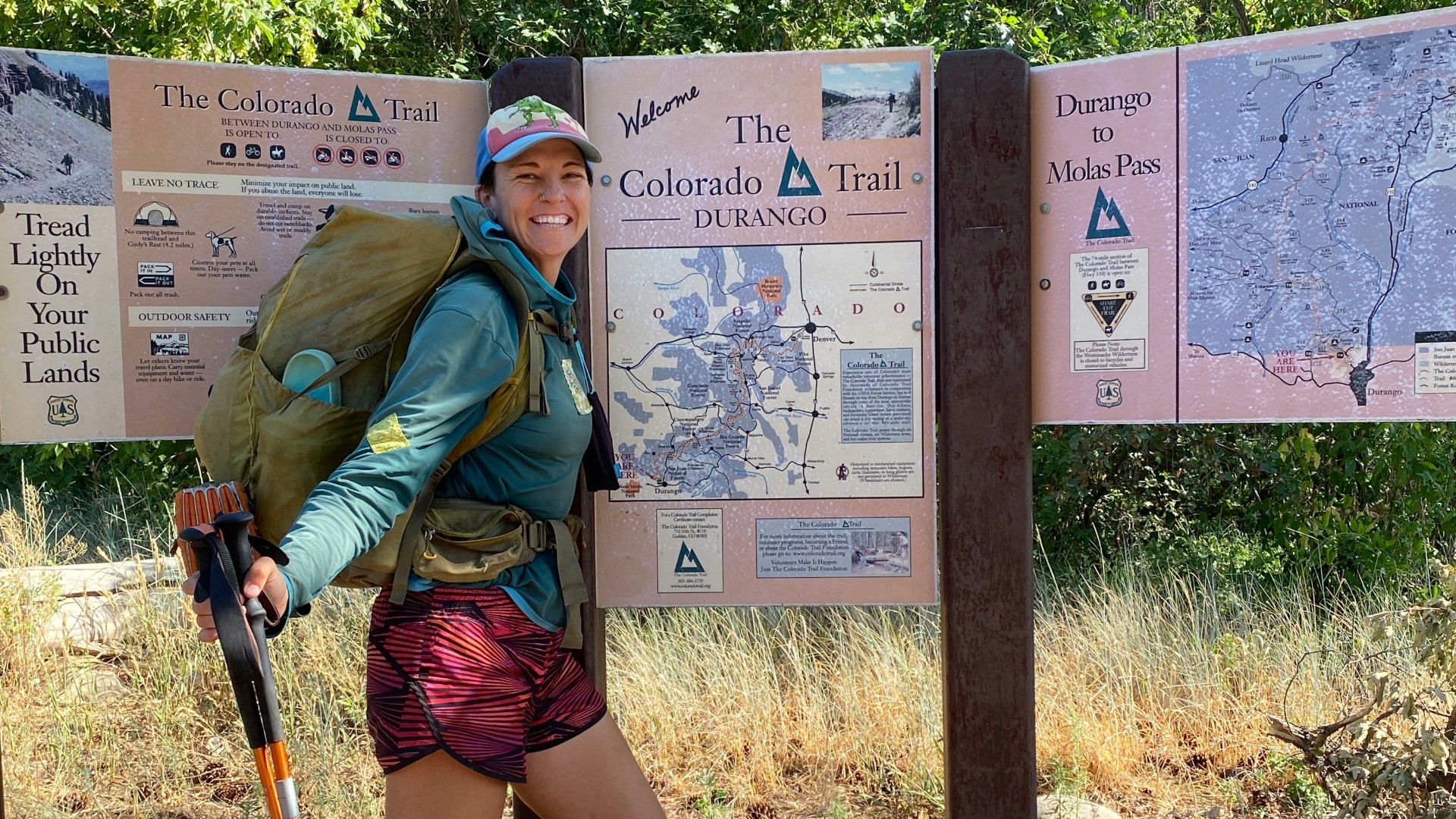
Hiking Toward a Better Grid: Maria Stubbendick ’25 Finds Purpose on the Trail
Electrical engineering student Maria Stubbendick ’25 is walking through mountains this summer with something bigger in mind: a more resilient and sustainable energy future.
August 14, 2025 ![]() Tolar Ray
Tolar Ray
Maria Stubbendick is not spending her summer in a lab or at a desk. Instead, she is trekking across high ridgelines in the Rockies and dense hardwood forests in the Carolinas, logging nearly 900 miles on foot. Her gear includes hiking poles, freeze-dried meals and a mind tuned to the complexities of the modern electrical grid.
Stubbendick, a master’s student in electrical engineering at NC State, is halfway through a pair of long-distance backpacking trips that stretch from the foothills of Georgia to the high passes of Colorado. The solo portion took her through the Foothills Trail, the Bartram Trail and segments of the Appalachian and Mountains-to-Sea Trails. Now, with her partner, she is thru-hiking the Colorado Trail and expects to finish in early August.
For Stubbendick, the journey is not just about endurance or scenery. It is about alignment. After seven years in HVAC controls, where she helped make buildings more energy efficient but often saw environmental impact take a back seat to cost, she decided to make a change. She returned to graduate school to focus her career on renewable energy and is now pursuing a master’s degree in electrical engineering along with a certificate in Renewable Electric Energy Systems.
“I came back to school to focus on work that has a more tangible, positive impact on the environment,” she says. “Backpacking helps me stay connected to that purpose.”
That purpose took root on the Appalachian Trail in 2022, when she spent several months hiking and reflecting during a career transition. “On trail, I found a community deeply rooted in environmental stewardship, which helped me realize I wanted to focus on renewable energy and work alongside others who share that commitment.”
At NC State, her academic work includes modeling power systems, exploring renewable integration and studying how to make the grid more resilient. These are complex, technical challenges that demand persistence. Time on the trail provides clarity.
“Backpacking is a reset button. It helps me return to school with a clear head and a stronger sense of direction,” she says. “It reminds me why this work matters.”
The connection is more than symbolic. Backpacking requires systems thinking, adaptability and resourcefulness — all essential for energy engineers. “The unexpected is inevitable,” she says. “You learn to approach challenges with creative problem-solving using the tools available. That mindset is key to building resilient grids.”
She also credits Leave No Trace principles, a backpacker’s code of ethics grounded in environmental responsibility, with shaping her values. “Practicing them allowed me to enjoy and appreciate nature responsibly, inspiring me to focus on energy solutions that work with natural resources and help minimize environmental impact.”
As she approaches the final miles of the Colorado Trail and looks ahead to her last semester at NC State, Stubbendick reflects on the lessons she has learned both on the trail and in the classroom. Her advice for those considering this field: “Start where your curiosity and values intersect, and don’t wait for a perfect roadmap. Whether you’re drawn to engineering, field work or policy, there is a place for people who want to make a real difference.”
While her summer has involved plenty of hiking, it has also offered much-needed restoration. “This summer hasn’t really been about balancing school and hiking. It’s been a chance to recharge,” she says. “And it’s reminded me how important it is to unplug during the semester. A quick overnight in the woods isn’t time spent neglecting my work. It’s what helps me stay focused and makes the work sustainable.”
Maria Stubbendick is hiking toward a future built on purpose, powered by clean energy and shaped by the same principles that carry her through every mile: intentionality, resilience and care for the planet.
